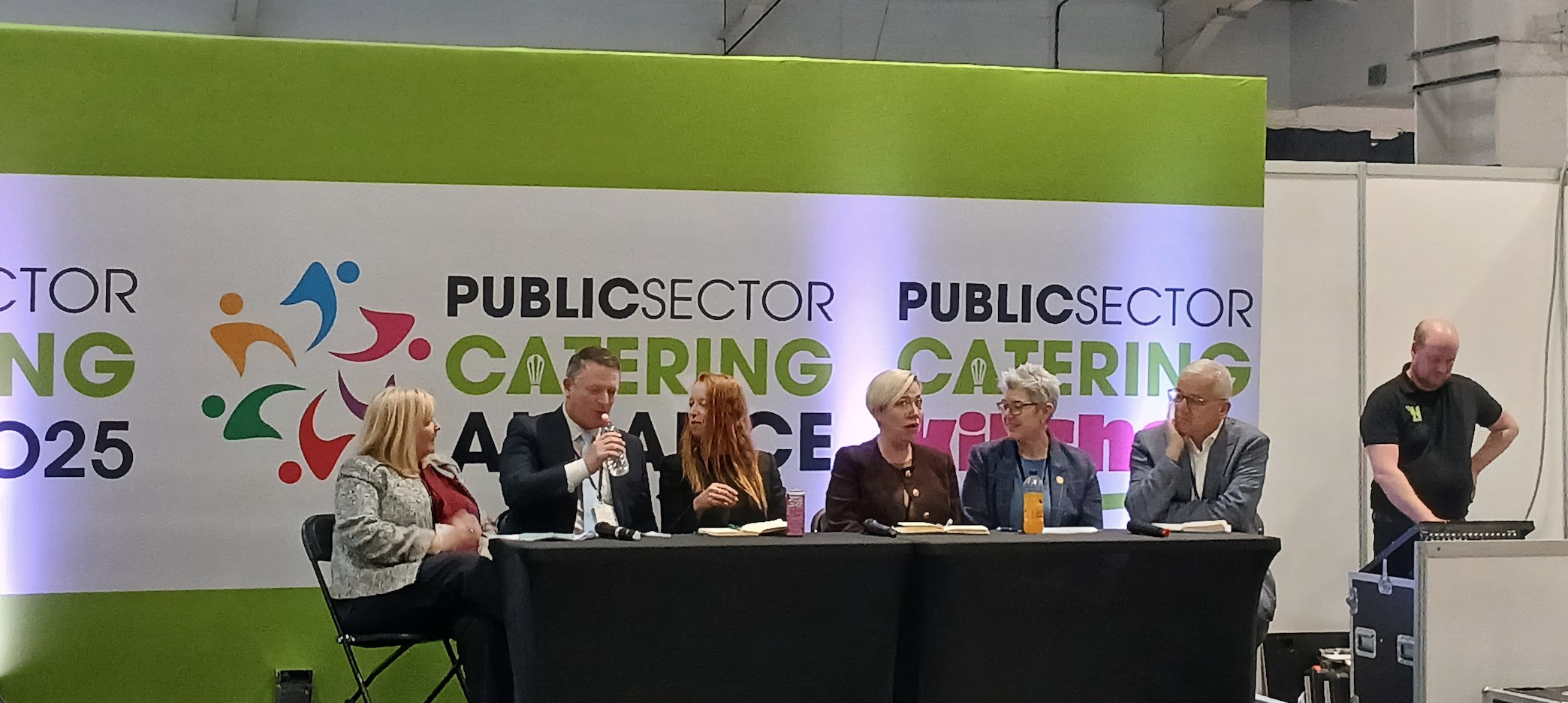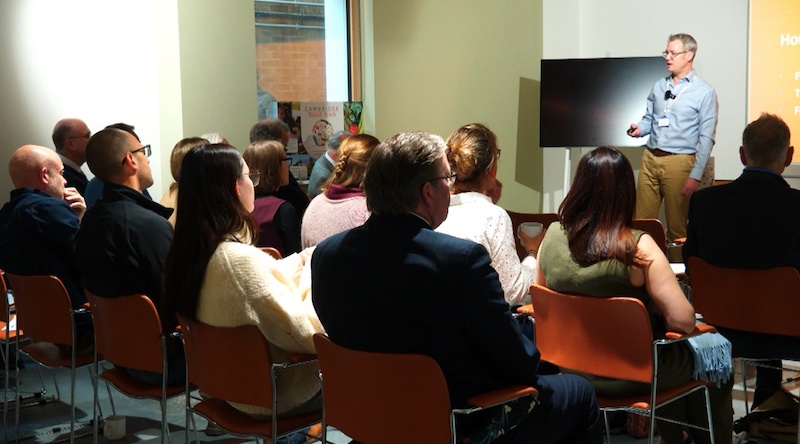Recent policy developments in Wales have the potential to further improve the quality of food on the public plate.

Wales has a wide range of enabling legislation and policies when it comes to public sector food. However, there is scope for pushing the boundaries. In this blog, PFG partner Alison Sheffield from Social Farms & Gardens flags some of the recent policy developments in Wales that may lead to further improving the quality of food on the public plate by creating new partnerships and adopting a holistic approach to wellbeing and value creation.
Building partnerships through a Community Food strategy
29 April 2025 was an abundant day for progressive food strategy in Cymru (Wales). The long-awaited Community Food Strategy (CFS) published by Welsh Government was one of their Programmes for Government 2021-26 and is the result of in-depth mapping, consultation and visioning exercise with a range of actors.
The concept of a “community” food strategy is complex in a sector that is moving and developing rapidly. In May 2023, we saw the narrow defeat in the Senedd of the Food Bill. Proponents were reassured that most of the proposals would be forthcoming via other routes anyway, including through the CFS. The following month, three “community” organisations joined forces to showcase their activity at an event in the Senedd which demonstrated how the intersection of community, public and commercial is messy – and food is cross-sector.
The final CFS does capture this and joins the dots with other key policy and legislative opportunities that can work together to boost food that delivers health, economic, environmental and cultural benefits. It also prioritises the Sustainable Food Places movement. In Cymru, we’re fortunate to have a Local Food Places Coordinator in each of the 22 Local Authority areas (two in the large county of Powys). This movement intrinsically recognises that there is no clean juncture between the activity and effect of different food actors – and that food connects us all. These partnerships are a superb space for fostering relationships that build opportunities and create build the trust required to take risks on new ways of working that enable change – bringing citizens, institutions and commercially-driven food actors along.
Celebrating the Wellbeing of Future Generations
The same day also saw the 10th anniversary celebrations of Cymru’s Wellbeing of Future Generations Act (WFGA). This piece of world-leading legislation places a duty on public bodies to consider the impact of their actions on future generations through seven wellbeing goals, furthermore it sets out five ways of working that encourage sustainable development.

The current Future Generations Commissioner, Derek Walker was appointed to the role in March 2023. From a community-sector background and having grown up on a farm, it was maybe not too much of a surprise that following his team’s initial mapping and research, food was identified as one of the key priority areas where activity could have the greatest impact. CymruCAN sets out the FG’s strategy 2023-2030 with five missions to focus activity of the FG’s Office. This anniversary was an opportunity to reflect on progress in the priority areas and the missions. Due to the Office’s remit, it necessarily aims its proposals at the Public Sector, using the limited resources that are available for longer term benefit.
Public sector food as an investment rather than a cost
Just two months ago we saw the implementation of a piece of legislation that demonstrates the uniquely privileged position of cash-strapped LAs in Cymru. The WFGA provides the bedrock for the Social Partnership and Public Procurement (Wales) Act 2023 whereby public bodies are legislated to reduce their MEAT. No longer is it a requirement to take theMost Economically Advantageous Tender (MEAT) but to take the Most Advantageous Tender (MAT).
With regards to food in particular this helps us to shift our perspective from seeing food as a commodity to an investment. What could be a better example of taking a MAT approach than investing in nutritious, organic produce for our school children from local suppliers who are paying a living wage. This new legislation gives public sector buyers the tool to have confidence in making purchasing decisions that bring long term benefit – to the PS through better, healthy outcomes, higher tax revenue and improved natural environment – and to the citizens or “the community” through the self-same routes. It also encourages joint bidding and partnerships that genuinely provide mutual benefit – recognising that smaller actors can deliver important outcomes particularly with regards to local economy, environment and culture.
Public Sector food purchasing choices are important because the driver doesn’t have to be cost. Profit in the public sector comes in other forms too - notably reduced bills in other departments. It is also equalising, the public sector feeds the most vulnerable in our society, but also many others.
Community Food includes provision of food security at crisis point, but taking the principles of the WFGA, the CFS recognises that it is abundantly more. Community Food is about agency, food sovereignty, food justice and (food) citizenship. It’s therefore right that a Community Food Strategy seeks to create and enhance spaces where all voices can be heard and build on existing local activity and mechanisms (including public sector supply chains)to bring us all on a journey where we have opportunity and desire to access and enjoy food that is good for our bodies, our local economy and our natural world.
Latest news




